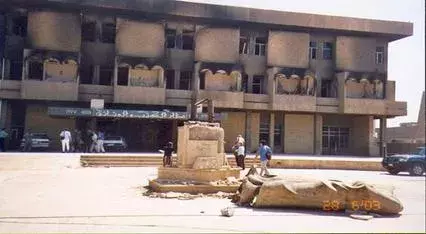National Library of Iraq

- The National Library of Iraq, located in Baghdad, is one of the most important cultural and historical institutions in the country. Established in the early 20th century, the library holds a vast collection of books, manuscripts, and historical records that reflect the rich intellectual and cultural heritage of Iraq. It serves as a central repository for Iraqi literature, historical documents, and scholarly works, preserving the country's national memory and offering resources for researchers, scholars, and students. The library's collection includes both Arabic and foreign-language books, spanning a variety of disciplines such as literature, history, science, art, and religion.
- Throughout its history, the National Library of Iraq has been a vital center for intellectual life in Baghdad, attracting writers, academics, and researchers from across Iraq and the world. The library offers a range of research resources, including access to rare manuscripts, ancient texts, and important archival materials that document Iraq's rich history. The library has also been instrumental in promoting cultural exchange, serving as a platform for the study of Iraqi history, culture, and language. It hosts lectures, workshops, and academic events, contributing to the intellectual and cultural vibrancy of Baghdad.
- Unfortunately, the library was significantly affected by the violence and conflicts that have taken place in Iraq over the past few decades. During the Iraq War in the early 2000s, the library suffered considerable damage, and many of its books and manuscripts were lost or destroyed. Despite this, efforts to rebuild and restore the library have been ongoing, with international organizations, scholars, and local efforts working together to preserve the library’s remaining collection and revive its role as a center for learning and cultural heritage. The restoration of the National Library of Iraq is seen as a symbol of Iraq’s resilience and its commitment to preserving its cultural and intellectual legacy.
- Today, the National Library of Iraq continues to play a critical role in the intellectual and educational landscape of the country. It remains a vital resource for the preservation of Iraq’s historical documents, literature, and cultural history. The library is not just a place to access books and research materials but also a space for dialogue and education, helping to inspire future generations of scholars, writers, and cultural enthusiasts. Despite the challenges it has faced, the National Library of Iraq stands as a symbol of Iraq’s cultural identity and a testament to the importance of preserving and sharing knowledge in the face of adversity.
